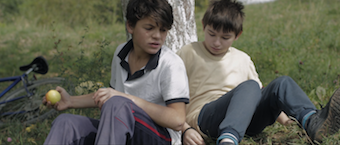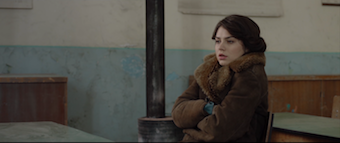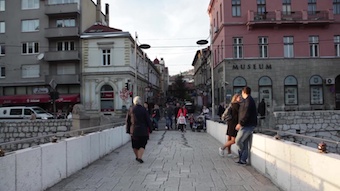|
Saturday - November 30th, 2019 6 pm Sala Maniscalco Urbino, Italy |
|
|
Angel, a quiet and withdrawn boy, goes with his friend Mishko to pick apples, in order to sell them later. But, as the day passes, Angel is increasingly faced with the cruelty of Mishko and his own parents. He becomes a victim of child abuse. |
|
||||||
Velika, a young teacher, is sent to a remote village in the mountains to teach the children who live there. However, the winter is cold and long, and there seems to be no trace of the children. Instead, Velika meets an old lady who takes her on the path of self-discovery.
|
|
||||||
In November 1995, the Dayton Agreement stopped the war in Bosnia and Herzegovina, but it did not build a real peace. A quarter century after the end of the 1992-1995 conflict, a filmmaker, a cooperator and a writer went looking for conflict’s witnesses, the same people who, after the signature of the peace agreement of 1995, rolled up their sleeves in order to rebuild a country, but instead of it, the country became prisoner of nationalism, corruption, poverty and hatred, in a society put to the test by grief and neglect. Jovan Divjak, Pero Sudar, Amor Mašović, Staša Zajović, Bakira Hašečić, Kanita Fočak, Jacob Finci, Dervo Sejdić, Selma Hadzihalilović, Ifeta Mejremić and the youth of today speak the truth about the war, the return to peace, the difficulties, the hopes and the disappointments of today's Bosnia and Herzegovina. From Sarajevo to Bratunac, via Belgrade, from Višegrad to Srebrenica, protagonists’ voices follow each other, overcoming cultural affiliations, to tell individual and family tragedies: life during the war, hateful ethnic rapes, the genocide of Srebrenica and the one of Višegrad that has never been recognized, the loss of family members, of the home, of work, of any certainty; the end of a world, of a life. A quarter century later, Bosnia and Herzegovina has still to deal with the weight of the conflict. On present and future are appearing dark clouds, again. But listening to the film protagonists, there is still something instilling hope of change in Bosnia-Herzegovinians. Listening to their voices, a lot can be learnt… |
|
||||||
|
|
||||||
|
|||||||


